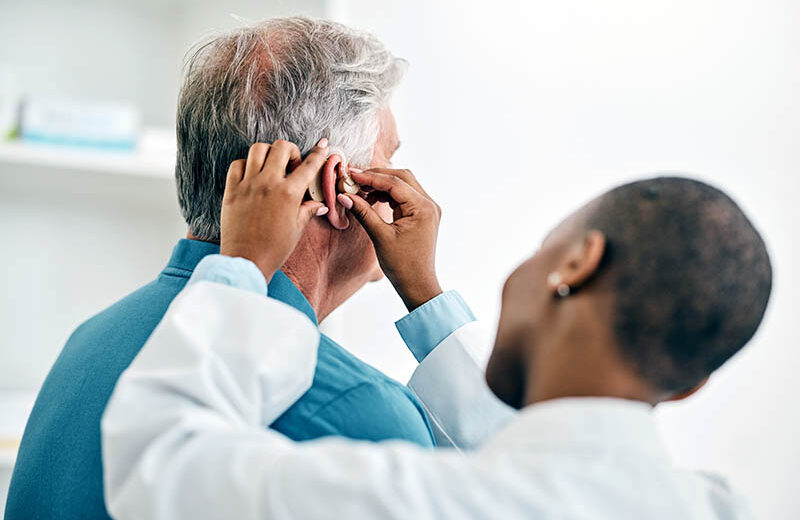Sticking to a routine maintenance schedule can help improve the longevity of your hearing devices. Hearing aids are crucial in connecting individuals to what is of the utmost significance, underscoring the necessity for meticulous maintenance and optimal functionality. Scheduling a hearing aid tune-up can prolong the lifespan of your technological equipment, mitigate wear and tear, and uphold the clarity of hearing that is rightfully yours. Analogous to high-performance vehicles, your hearing aids warrant periodic tune-ups akin to pit stops, underscoring the significance of routine upkeep.
Managing Problems Proactively:
In most cases, hearing aids function effectively, enabling individuals to perceive the crucial sounds in their daily lives. Enhanced hearing significantly contributes to overall well-being, a fact substantiated through daily observations. However, occasional suboptimal performance of the hearing instruments may manifest, such as a weakened sound output. Timely and routine maintenance is pivotal in addressing most issues, preventing them from escalating into significant problems.
Home Maintenance:
Numerous fundamental hearing aid maintenance procedures can be conducted within the convenience of one’s residence. Applying a basic tool kit, essential household supplies, and adherence to standard best practices can facilitate seamless hearing aid maintenance. For instance, it is advisable to power down the devices when not in use and store them in an inaccessible location for children and pets.
Signs it is Time to Schedule a Hearing Aid Tune-Up
Reduced Audio Quality
Should you observe a reduction in the clarity and fidelity of the sounds perceived through your hearing aids, it serves as a distinct indicator that a maintenance check may be in order. This may present as muted sounds or intermittent variations, thereby complicating the comprehension of conversations or the discernment of lyrics in familiar musical compositions.
Fading Volume
The diminished acoustic output from your hearing aid necessitates a visit to your audiologist for adjustments. Difficulty discerning soft or whispered speech signals the potential need for recalibration to align with your specific auditory requirements. Accurately calibrated hearing aids are indispensable for capturing subtle dialogues and personal interactions.
Lessening Battery Life
Nothing disrupts a meaningful conversation more swiftly than a declining battery amidst it. It is imperative to manage your battery situation to circumvent uncomfortable lulls effectively. Experiencing a sudden power interruption is universally undesirable, whether utilizing disposable or rechargeable batteries. If you observe inconsistent power outputs while replacing or recharging the batteries, you should seek guidance from your audiologist or hearing aid specialist.
Irritation and Discomfort
If your previously comfortable hearing aid has begun causing discomfort, it is essential not to allow this issue to disrupt your daily routine. A change in the fit or comfort of your hearing aids indicates the need for adjustment. Should you experience discomfort, itching, or irritation in your ears, these symptoms may be attributed to changes in your ear canal or issues with the hearing aid molds. A professional adjustment can effectively address these fitting issues.
Feedback
Undesirable auditory feedback, such as whistling or squealing sounds, may indicate potential tuning irregularities within hearing aids. These occurrences can arise from improper device fitting, elevated volume settings, or malfunctioning microphones. Engaging in a tune-up session can mitigate these disruptive acoustic manifestations. To effectively manage or eliminate feedback, it is advisable to seek counsel from your audiologist.
Should any of these indications manifest, it is prudent to seek consultation with your audiologist or hearing care professional for a comprehensive appraisal and essential adjustments to optimize the performance of your hearing aids. Regular diagnostic evaluations and adjustments are imperative for preserving the efficacy of one’s auditory apparatus.





